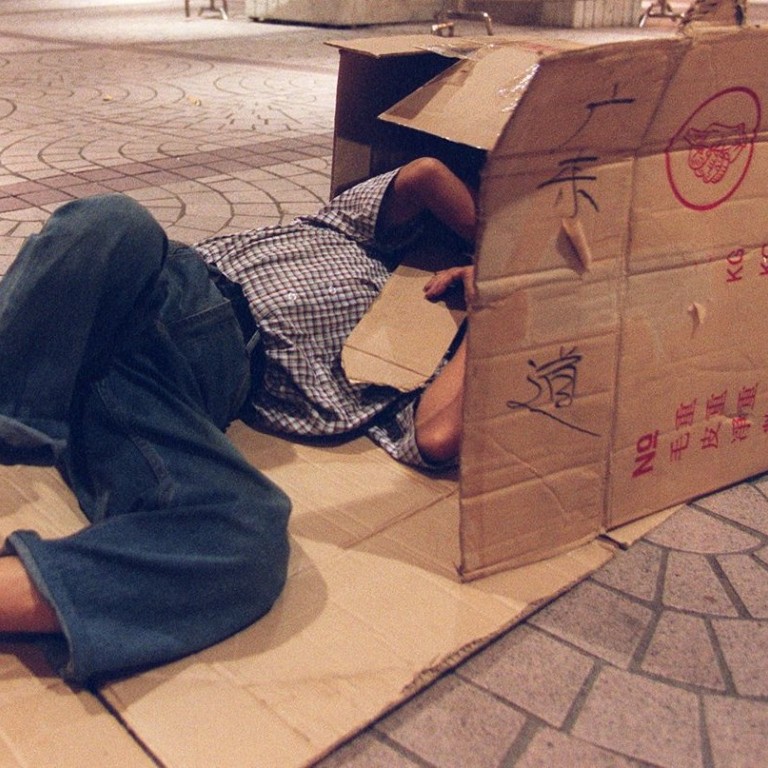
Prevention is best cure for city's hidden crisis on homelessness
There is no more visible sign of the gap between hong Kong's rich and poor than the sight of a street sleeper bunking down for the night in a makeshift cardboard home in a Causeway Bay underpass.
There is no more visible sign of the gap between hong Kong's rich and poor than the sight of a street sleeper bunking down for the night in a makeshift cardboard home in a Causeway Bay underpass. Above, there are stores selling HK$100,000 handbags and cars that cost as much as a flat, yet in this premier shopping district, there are also people who sleep rough, unable to afford rent and sometimes even food. But while the number of Ferraris and Lamborghinis is known, the scale of homelessness cannot be given with certainty. While the government keeps estimates, there has not been a city-wide survey since 1999 and a recent City University study puts figures at more than twice the official level.
Working with three community organisations, the university determined that Hong Kong has 1,414 homeless people - substantially more than the last government tally of 674. Even then, the researchers were only guessing at the figure, their eight months of work being based upon counts at 180 locations, including temporary shelters and 24-hour restaurants. Homelessness is, after all, a fluid situation, with rents and jobs being significant determining factors. Then there is the small minority of people who refuse help or are antisocial, preferring to live on the streets; they cannot be forced to change their ways as they are not breaking any laws.
For the majority, though, homelessness, like poverty, is a matter of circumstance, not choice. The community and authorities have to take a compassionate approach towards their plight. Chief Executive Leung Chun-ying promised this in his last policy address, pledging to channel resources to those most in need - the poor, elderly and minority groups. For the homeless, this requires ensuring there are enough places for them in temporary shelters and hostels.
First, though, there has to be as accurate as possible an accounting of how many people are in need. Hong Kong-wide assessments have to be carried out by government departments on a regular basis to get as true as possible a picture of the problem. The solution lies in stable employment and affordable housing, the latter having already been made a priority by Leung's administration.
Regardless, adequate contingencies have to be made available through temporary or medium-term shelters until permanent housing can be found. Ultimately, Hong Kong's goal has to be to prevent homelessness, not cure it.

